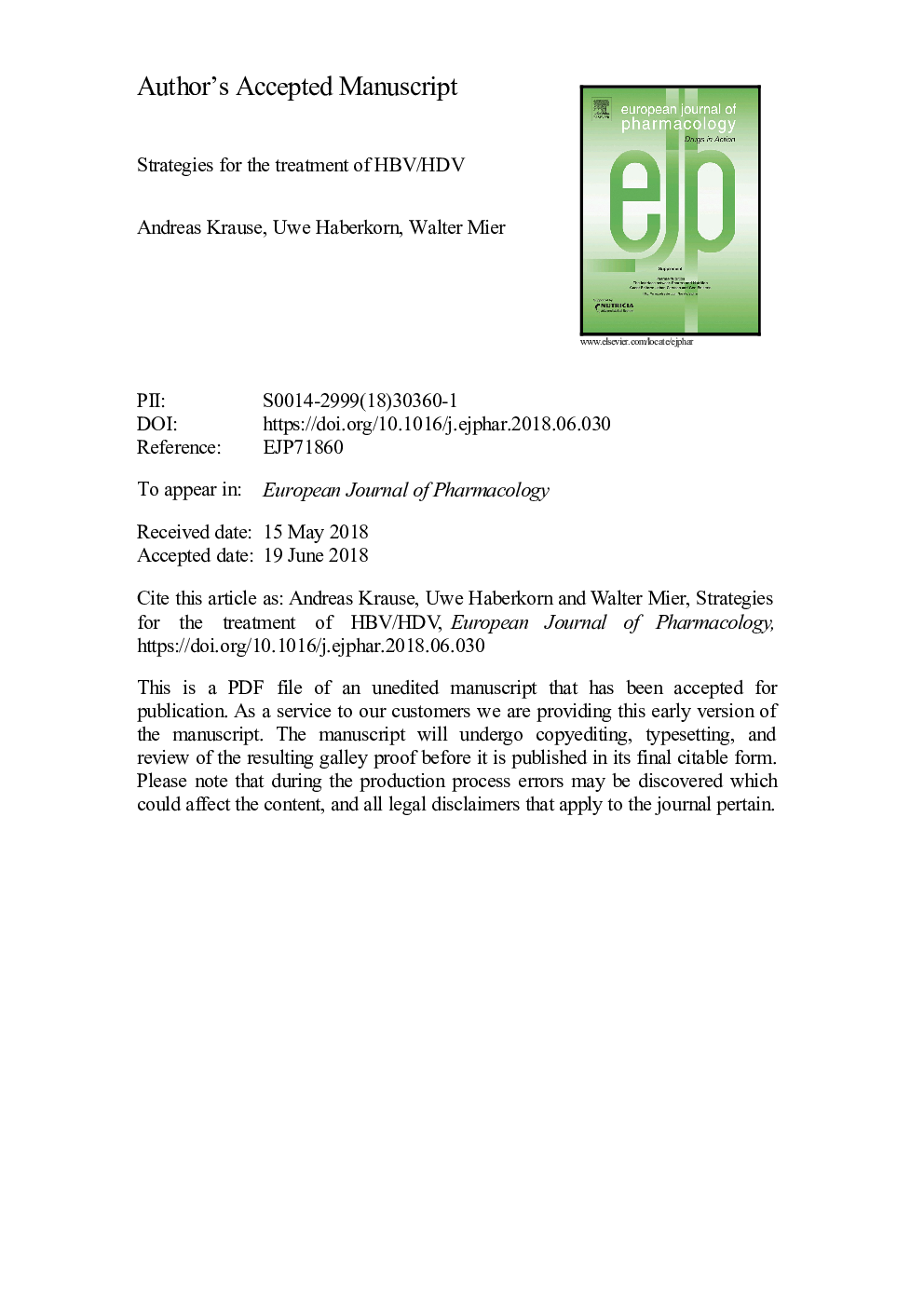| Article ID | Journal | Published Year | Pages | File Type |
|---|---|---|---|---|
| 8529024 | European Journal of Pharmacology | 2018 | 21 Pages |
Abstract
An estimated 240 million people worldwide are chronically infected with the hepatitis B virus (HBV). Despite readily available vaccination, HBV infections remain highly prevalent. As established HBV infections constitute a strong risk factor for developing hepatocellular carcinoma their treatment is a major task for the health system. Unfortunately, HBV is not curable with today's medicine. Approximately 15 million HBV patients have developed a hepatitis delta (HDV) infection on top of their HBV infection. The patients superinfected with this satellite virus suffer from a more severe disease development. The knowledge of the viruses, their classifications, clinical implications, treatment options and efforts to increase the drug variety are compiled in this review. The current standard therapies include nucleosidic reverse transcriptase inhibitors and interferon. As the known treatments fail to cure HBV and HDV, targeted treatment is highly warranted. The focus of this review is set on the drugs currently under clinical investigation. Furthermore, strategies for the development of targeted treatment, and compounds with novel mode of action are described.
Keywords
Related Topics
Life Sciences
Neuroscience
Cellular and Molecular Neuroscience
Authors
Andreas Krause, Uwe Haberkorn, Walter Mier,
